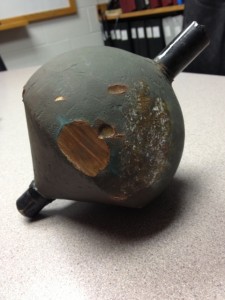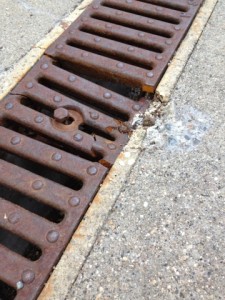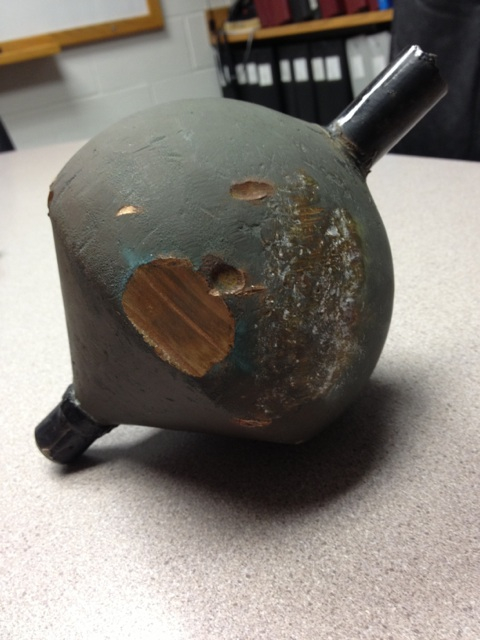Nearly 25 lb striker falls 80 ft from top of tower to ground

Never in the history of Verdin, a bell manufacturer, has this ever happened.
On Sunday, Sept. 22, Concordia’s bell tower stopped ringing as the main bell’s striker flew from the top of the tower onto the brick ground below. The striker, which weighs 24.7 pounds, was found later that day by campus security. It had fallen over 80 feet from its resting place in the top of the bell tower, damaging the grate circle around the base of the tower.
Wayne Flack, director of facilities management, said that when he arrived Monday morning, they shut the electricity off that runs the bells and did a visual examination of the bells to see if there was anything obvious that could have caused the striker to fall. Upon closer examination of the striker, it was observed that the shaft that holds the striker to the bell split, causing it to fall to the ground.
After calling Verdin, the manufacturer of the bell tower, they learned this was a first. Flack explained that never in the company’s history had this happened before.
The bell tower, which was built in 1990, has never had any issues before now, Flack said. Unfortunately, the strikers used in the tower are no longer made, which means a new one will most likely need to be cast instead of just ordering a replacement.

A factory representative from Verdin plans to come to campus Oct. 17 to examine the bell tower to ensure it is in proper working order before the electricity gets turned back on, Flack said.
“We don’t want (the tower) running until they examine the others,” Flack said.
He also said they are hoping to put it back in service; although, until the fallen striker gets replaced the hourly bell will be missing.
There are six bells in the top of the tower and the hourly bell is the largest one, located in the center of the six.
Flack said facilities is looking into fastening some sort of tether onto the strikers in the future, in hopes of preventing something like this from happening again. However, he said this would just be done to err on the side of safety.
“It was kind of a fluke deal,” Flack said.

